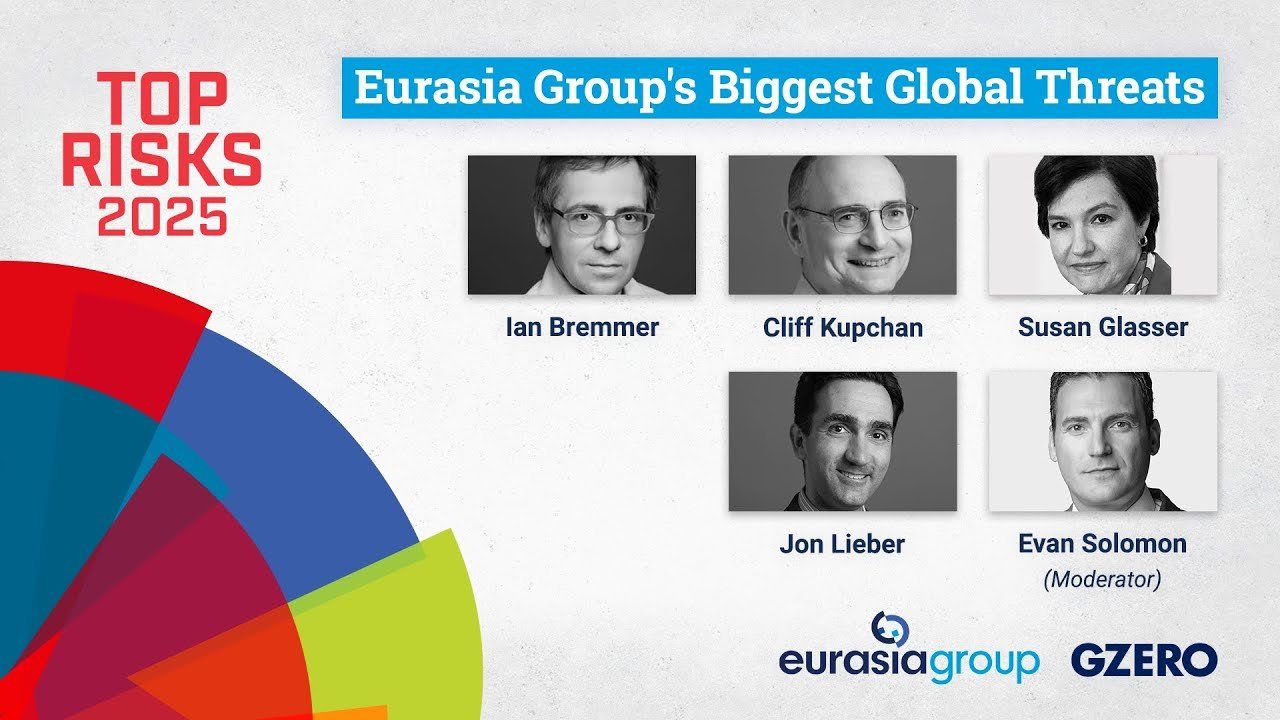January 08, 2025
With political instability plaguing US allies, from Canada and South Korea to Japan and Germany, 2025 promises plenty of geopolitical storms. To get you up to speed, GZERO Publisher Evan Solomon sat down with Eurasia Group’s Ian Bremmer, Cliff Kupchan, and Jon Lieber, as well as the New Yorker’s Susan Glasser, to discuss the 2025 Top Risks report.
One name came up over and over again: Donald Trump. The incoming US president promises tariffs that could upend the global economy, crash relations with China, and worsen the chaos in ungoverned spaces. With Russia still running rogue, Iran badly bruised on the world stage, and AI changing geopolitics — not necessarily for the better — Kupchan characterized the current situation as the riskiest since World War II.
Bremmer said that all of the above, from Washington to Ouagadougou, is merely a symptom of the biggest risk facing the planet: that the G-Zero world, one in which no power can bring order to the international system, is on the rise.
Take a deep dive with the panel in our full discussion, livestreamed on Jan. 6.
More For You
Xi Jinping has spent three years gutting his own military leadership. Five of the seven members of the Central Military Commission – China's supreme military authority – have been purged since 2023, all of whom were handpicked by Xi himself back in 2022.
Most Popular
Sponsored posts
Five forces that shaped 2025
What's Good Wednesdays
What’s Good Wednesdays™, January 28, 2026
Walmart sponsored posts
Walmart’s commitment to US-made products
- YouTube
In this episode of GZERO Europe, Carl Bildt examines how an eventful week in Davos further strained transatlantic relations and reignited tensions over Greenland.
- YouTube
In this episode of "ask ian," Ian Bremmer breaks down the growing rift between the US and Canada, calling it “permanent damage” to one of the world’s closest alliances.
An employee works on the beverage production line to meet the Spring Festival market demand at Leyuan Health Technology (Huzhou) Co., Ltd. on January 27, 2026 in Huzhou, Zhejiang Province of China.
Photo by Wang Shucheng/VCG
For China, hitting its annual growth target is as much a political victory as an economic one. It is proof that Beijing can weather slowing global demand, a slumping housing sector, and mounting pressure from Washington.
© 2025 GZERO Media. All Rights Reserved | A Eurasia Group media company.
